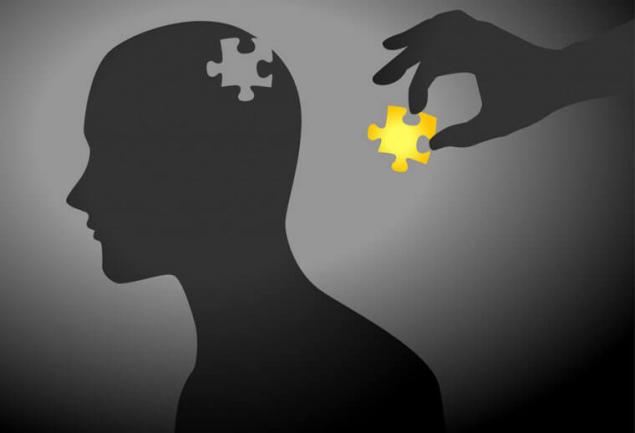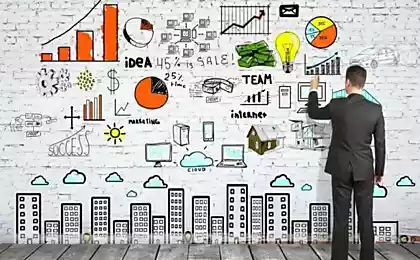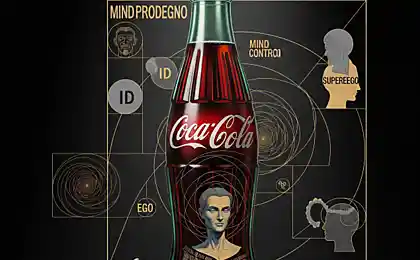459
6 psychological rules of persuasion by Robert Cialdini
Researchers for more than sixty years studying the reasons that encourage us to say Yes to someone's request. There is no doubt that the basis of techniques and methods for persuading people is the science. Much of the science is surprising.

The first universal rule of persuasion is RECIPROCITY
People feel obliged to reciprocate the attention or service that they had previously. If a friend invited you to a party, you will have to invite him to visit yourself. If a colleague did you a favor, you the case are obliged to repay the favor. Also in the case of public obligations, people are more likely to say Yes to those they owe something.
One of the best demonstrations of the principle of reciprocity, provides a number of studies conducted in restaurants. For example, when was the last time you dined in the restaurant, it is highly likely that the waitress brought you a little treat, most likely, simultaneously with the score. It could be a fortune cookie or just a mint. Then the question arises – does this treat the size of left you a tip? Most people answer no, but a mint can produce a wonderful effect.
In the study, the treat at the end of lunch, candy, increased the size of the tip of 3%. Curiously, if the treat is doubled, you are offered two candies, then increase to tips increases not two, but four times – up to 14%. But the result becomes more interesting when the waiter gives you a candy, departs from the table, then stops and says that for such pleasant visitors it has another piece of candy. Tips increase by as much as 23%, responding only to what it was presented with a treat.
Thus, the key to the application of the rule of reciprocity is to be the first to provide a service, and that it was pleasant and unexpected.
The second universal principle beliefs are based on RARITY
That is, people tend to purchase those things that are hard to get. When
2003 British Airways announced the cancellation of the second day of the Concorde flight on the route London-new York from-for economic inexpediency, the next day there was a surge of ticket sales. Note that, by the flight, no changes happened, the plane did not fly faster, the quality of service has not improved, the cost of tickets has not decreased. Just the ability to use the service declined sharply. And as a consequence of increased demand. Therefore, the technique of applying the principle of "rarity" for beliefs quite clear.
It is not enough just to tell people about the benefits they will receive by choosing your products or services. Need to highlight unique features of your proposal. To tell people what they're missing if they don't use it.
The third rule of persuasion based on AUTHORITY
The point is that people are willing to listen to the opinion of credible experts.
For example, physiotherapists are able to convince more patients to perform the recommended exercises, if hung on the walls of the Cabinet their medical diplomas and certificates. Also in the Parking lot you will likely move your car at the request of the stranger, if he will be wearing a uniform instead of regular clothes.
It is important to make it clear to people that your knowledge and experience deserve the trust before making an attempt of persuasion. Of course, it's not always easy to do. You're not going to go around the potential buyers and to sell myself. However, you can certainly arrange for someone else to do this for you.
And then science makes unexpected a conclusion. If you advertise, it turns out, no matter your agent gets a profit or not. So one real estate firm was able to increase the number of orders for real estate appraisals and subsequently the number of concluded contracts, advising consultants, responding to requests of customers, to start talking about the experience and the merits of the agents of the company. For example, the treatment of delivery of property in rent, the answer was something like, "Let me connect you with Sandra who has over 15 years of experience in lease customers." Clients interested in selling property, attracted by the Council: "You'd better talk to Peter, he is the head of our Department of real estate and has over 20 years of experience in this area." The result of these recommendations was twenty percent increase in the number of consultations and pyatnadcatiletnij the growth of Contracting – not bad for such a harmless reception of a person's beliefs, which also does not require any costs.
The next principle of persuasion is a SEQUENCE
People like to be permanent, as in their words and in their deeds. Below
to achieve consistency in behaviour need to come up with the first small thing and offer people to do it.
In one famous experiment was received unexpected result. Very few residents of one of the residential districts agreed to place on the lawn in front of his house a nondescript wooden sign to support the company for safety on the roads. And in another such area almost four times more homeowners agreed to put the same plate. Why? Because ten days ago they put on the window sill little post card in support all the same company. This card was the first small step that led to a fourfold effect when performing the second, more difficult coherent action. Therefore, intending to play a sequence in behavior, the master of persuasion try to bring people to voluntary, active, public action. Ideally, achieving its consolidation on the paper.
For example, in a recent experiment, the number of failed receptions at the medical center declined by 18%. Due to the fact that patients were asked to fill in the coupon record to the doctor. Whereas previously it was done by medical professionals.
The fifth method of persuasion based on SYMPATHY
People are more willing to say Yes to those they like. But for some reason one person likes another? The theory of persuasion says that there are three main factors:
We like people similar to us;
We love those who we praise;
We sympathize with the people that are doing the same business.
In a series of studies of the psychology of people's beliefs in the process of negotiations, was attended by students from two prominent business schools, enrolled in the specialty "master of business administration".
One group of students received the instruction: "Time is money, so go directly to the cause." In this group the agreement has managed to reach about 55% of the participants. The second group was given other instructions: "Before to begin negotiations, try to get to know each other and find something in common, that is all you." After that, 90% per cent of negotiations were successful and gave satisfactory results. That is 18% percent more for each side.
Thus, to use the powerful tool of sympathy, as a method of convincing people, you need to make an effort to find areas of convergence in the views. Try to give sincere praise to the interlocutor, before proceeding to the discussion of business matters.
The last principle belief of CONSENT
People often focused on the actions and behavior of other people, when he is hesitating. You may have noticed that usually in hotels put in bathrooms card urging guests to reuse bedclothes and towels. Most often, the guests draw what it contributes to the protection of the environment. This technique of persuasion is very efficient – its efficiency is 35%. But maybe there are more effective ways?
As it turns out, about 75% of guests staying in the hotel at least four days, at one time or another to re-use their towels. What if we use the rule of consent and just write about it in our card: "75% of guests staying in the hotel reused their towels. Please follow their example." As a result, the cracks from the change of linen will grow by 26%.
This method of psychological persuasion says that instead of having to rely on their own ability to believe, to emphasize that the behavior of the majority. In particular, such a majority, which one can easily carry myself.
So here they are six scientifically-proven ways beliefs are based on simple and often no-cost practices that can greatly increase your ability to persuade people and to influence their behavior, quite honestly. This is the secrets of the science of persuasion used in various areas of activity, ranging from simple interpersonal relationship and ending with their use in advertising and marketing. published
P. S. And remember, only by changing their consumption — together we change the world! ©
Source: vk.com/club8166610?w=wall-8166610_177666























